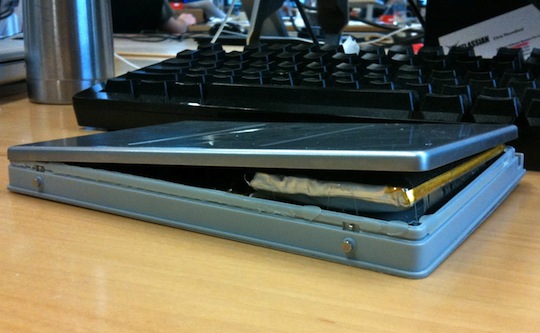The Pipeline and Hazardous Materials Safety Administration (PHMSA), a part of the United States Department of Transportation (USDOT), has proposed rules that would impose certain limitations on shipments of lithium batteries by air. The affected items are those that could potentially heat up and explode — meaning any lithium battery. These regulations would affect not only manufacturers, like Apple, but also retailers and airlines as a result of new packaging, training, transportation and logistical requirements under these new rules.
The Portable Rechargeable Battery Association (PRBA) — who even knew there was a such an association? — has stated that the proposed rule changes by the PHMSA would require $1.13 billion during the first year to implement for the associated packaging, transportation and training costs. Don’t fret, though. The United States House of Representative has passed a bill that protects manufacturers from these proposed limitations and rule changes.
Battery safety should be of utmost importance; however $1.13 billion doesn’t seem like a significant amount of money to decrease the likelihood of a battery explosion on an airplane. The cost would be spread across several industries as well as numerous manufacturers, so the overall burden to a single company seems minimal. And the impact for Apple would probably be smaller than for most manufacturers since Apple’s is meticulous when it comes to designing packaging.
As regulated, an air carrier is required to declare whether or not they will carry hazardous materials. If the air carrier chooses not to handle hazardous materials, and this rule is enacted, the selection of which carrier will deliver your shiny Apple gadget may be severely limited and may ultimately delay the delivery. The delay wouldn’t be due to the local-carrier, like Fedex or UPS, delivering it to your door; the delay would come from the shipping from Shenzhen, China, to the United States.
Of the two big local-delivery carriers in the U.S., Fedex and UPS, Fedex is currently accepting lithium batteries under “Class 9, Miscellaneous Materials.” UPS only accepts “Passenger Aircraft Quantities” and hazardous materials must be from contracted shippers. Furthermore, “certain lithium batteries may not qualify for UPS service.”
I’m not sure if this push back from PRBA is warranted. Yes, it will cost some money to rethink packaging, train staff, and it will impact shipping requirements, but this could be worse. The PHMSA could have proposed that NO lithium batteries could be transported by air, and then they would all have to be by sea or ground. Now think of how long it would take for your item to reach the United States. I think the PRBA is blowing this way out of proportion.
Further Reading
- Minutes from the Federal Register regarding a meeting on the proposed lithium battery changes
- UPS’ Hazardous Materials Service definition
- UPS’ list of common items that may be hazardous
- The PRBA urging the PHMSA to reject the new rules
Article Via AppleInsider
Photo Credit: Chris Mountford







